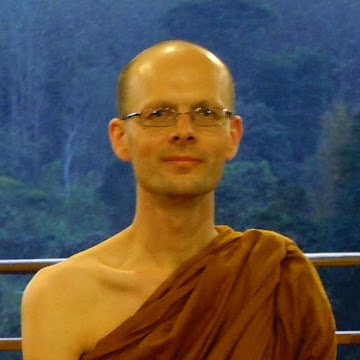2025-07-22
Jhāna, feelings, thoughts and desire
(MN 125) Evameva kho, aggivessana, ariyasāvakassa ime cattāro satipaṭṭhānā cetaso upanibandhanā honti gehasitānañceva sīlānaṁ abhinimmadanāya gehasitānañceva sarasaṅkappānaṁ abhinimmadanāya gehasitānañceva darathakilamathapariḷāhānaṁ abhinimmadanāya ñāyassa adhigamāya nibbānassa sacchikiriyāya.
Tamenaṁ tathāgato uttariṁ vineti: 'ehi tvaṁ, bhikkhu, kāye kāyānupassī viharāhi, mā ca kāmūpasaṁhitaṁ vitakkaṁ vitakkesi. Vedanāsu ... citte ... dhammesu dhammānupassī viharāhi, mā ca kāmūpasaṁhitaṁ vitakkaṁ vitakkesī'ti. So vitakkavicārānaṁ vūpasamā ... jhānaṁ upasampajja viharati.
(Aj Thanissaro) [Like the bindings on a wild elephant] ... These four establishings of mindfulness are bindings for the awareness of the disciple of the noble ones, to break him of his household habits, his household memories & resolves, his distraction, fatigue, & fever over leaving the household life, for the attainment of the right method and the realization of unbinding.
"Then the Tathāgata trains him further: 'Come, monk, remain focused on the body in & of itself, but do not think any thoughts connected with the body. Remain focused on feelings in & of themselves, but do not think any thoughts connected with feelings. Remain focused on the mind in & of itself, but do not think any thoughts connected with mind. Remain focused on mental qualities in & of themselves, but do not think any thoughts connected with mental qualities.' With the stilling of directed thoughts & evaluations, he enters & remains ... in jhāna.
(MN 18) ... phassapaccayā vedanā, yaṁ vedeti taṁ sañjānāti, yaṁ sañjānāti taṁ vitakketi, yaṁ vitakketi taṁ papañceti
(See discussion on 2025-03-05 on papañca)
(DN 21) Chando pana, mārisa, kiṁnidāno ... ? Chando kho, devānaminda, vitakkanidāno vitakkasamudayo vitakkajātiko vitakkapabhavo; vitakke sati chando hoti, vitakke asati chando na hoti.
(Nibbāna Sermon 29) What, dear sir, is the cause of desire ...? Desire, O King of Gods, has thinking as its cause, it arises with thinking, it has thinking as its origin. When thinking is there, desire comes to be; when thinking is not there, desire does not come to be!
What is the cause, the arising and the origin of thinking?
Reckonings born of prolific perception papañcasaññāsaṅkhā, but feelings and thinking are of two kinds, one inclines to papañca, the other inclines toward Nibbāna.
(AN 4.171) Avijjāya tveva asesavirāganirodhā so kāyo na hoti, yaṁ paccayāssa taṁ uppajjati ajjhattaṁ sukhadukkhaṁ ... sā vācā na hoti ... so mano na hoti ... khettaṁ taṁ na hoti, vatthum taṁ na hoti, āyatanaṁ taṁ na hoti, adhikaraṇaṁ taṁ na hoti, yaṁ paccayāssa taṁ uppajjati ajjhattaṁ sukhadukkhaṁ.
(Nibbāna Sermon 8) With the complete fading away and cessation of ignorance, the arahant has no notion of a body. That is, he does not have a perception of a body, like that of a worldling, who takes it as such, due to his perception of the compact, ghanasaññā. [...] Similarly, that mind is not there, so mano na hoti. It is only the collocation of preparations which arise and cease that is conceived as 'my mind'. Therefore, whatever field, site, base or reason, owing to which there can arise inward pleasure or pain, is no longer there.
(Snp 5.7) Accī yathā vātavegena khitto / atthaṁ paleti na upeti saṅkhaṁ
evaṁ munī nāmakāyā vimutto / atthaṁ paleti na upeti saṅkhaṁ.
(Nibbāna Sermon 11) As flame flung on by force of wind, / Reaches its end, comes not within reckoning,
So the sage, released from name-and-form, / Reaches his end, comes not within reckoning.
MN 119 Kāyagatāsatisutta
(SSP) Kathaṁ bhāvitā ca, bhikkhave, kāyagatāsati kathaṁ bahulīkatā mahapphalā hoti mahānisaṁsā?
Ānāpānassati (See 2025-06-11), mindfulness of four postures and current activity, examining the body as 32 parts, as the four elements, as the same nature of corpses.
Tassa evaṁ appamattassa ātāpino pahitattassa viharato ye gehasitā sarasaṅkappā te pahīyanti. Tesaṁ pahānā ajjhattameva cittaṁ santiṭṭhati sannisīdati ekodi hoti samādhiyati.
And as he remains thus heedful, ardent, & resolute, any memories & resolves related to the household life are abandoned, and with their abandoning his mind gathers & settles inwardly, grows unified & concentrated. (Aj Th.)
Puna caparaṁ, bhikkhave, bhikkhu vivicceva kāmehi ... paṭhamaṁ jhānaṁ upasampajja viharati. [...] Evampi, bhikkhave, bhikkhu kāyagatāsatiṁ bhāveti.
First jhāna simile: kneading a ball of bath powder until it is saturated with moisture.
Second jhāna simile: a deep lake gradually filled with cool water.
Third jhāna simile: a lotus that is still underwater, immersed in cool water.
Fourth jhāna simile: a person completely wrapped with white cloth.
Kāyagatāsati abhāvitā / bhāvitā:
Yassa kassaci, bhikkhave, kāyagatāsati bhāvitā bahulīkatā, na tassa labhati māro otāraṁ, na tassa labhati māro ārammaṇaṁ.
In whomever mindfulness immersed in the body is developed, is pursued, Māra gains no entry, Māra gains no foothold. (Aj Th.)
Ten benefits can be expected. Which ten?
(1) Aratiratisaho hoti, na ca taṁ arati sahati, uppannaṁ aratiṁ abhibhuyya viharati. (2) Bhayabheravasaho hoti, na ca taṁ bhayabheravaṁ sahati, uppannaṁ bhayabheravaṁ abhibhuyya viharati. (3) Khamo hoti sītassa uṇhassa ... (4) Catunnaṁ jhānānaṁ ābhicetasikānaṁ diṭṭhadhammasukhavihārānaṁ nikāmalābhī hoti akicchalābhī akasiralābhī. (5-9) ... powers of the mind ... (10) Āsavānaṁ khayā anāsavaṁ cetovimuttiṁ paññāvimuttiṁ diṭṭheva dhamme sayaṁ abhiññā sacchikatvā upasampajja viharati.
(1) He conquers displeasure & delight, and displeasure does not conquer him. He remains victorious over any displeasure that has arisen. (2) He conquers fear & dread, and fear & dread do not conquer him. He remains victorious over any fear & dread that have arisen. (3) He is resistant to cold, heat ... (4) He can attain at will, without trouble or difficulty, the four jhānas --- heightened mental states providing a pleasant abiding in the here & now. (5-9) ... powers of the mind ... (10) Through the ending of effluents, he remains in the effluent-free awareness-release & discernment-release, having known and realized them for himself right in the here & now.
Related
Why is the first jhana omitted from MN 125? - Buddhism Stack Exchange
